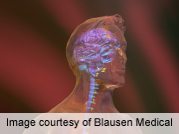
THURSDAY, Oct. 4 (HealthDay News) — U.S. health experts said Thursday they expect to see more cases of a deadly type of meningitis that has been linked to an apparently contaminated steroid used for back pain. The outbreak so far has killed five people and sickened at least 30 others in six states, authorities report.
All of the patients were injected with methylprednisolone acetate, a steroid drug that investigators suspect was contaminated with a fungus usually found in leaf mold.
The drug was manufactured by a specialty pharmacy, New England Compounding Center of Framingham, Mass., which last week voluntarily recalled three lots of the steroid. It has since shut down operations and stopped distributing its products, health officials said.
All of the infected patients received the medication from the Massachusetts pharmacy, Dr. Benjamin Park, a medical officer with the U.S. Centers for Disease Control and Prevention’s National Center for Emerging and Zoonotic Infectious Diseases, said at an afternoon news conference.
“The CDC and FDA recommend that all health care personnel cease use and remove from their pharmacy inventory any products produced by the New England Compounding Center,” Park said. “CDC also recommends that clinicians contact all patients who received injections from any of the three recalled lots to determine if they are having symptoms.”
Patients who are having even mild symptoms, including fever and headache, should see their doctor immediately, Park added.
“Unfortunately, despite the current recall, we expect to see additional cases,” he said.
The suspected steroid was shipped to 23 states, Park said.
Twenty-five cases of meningitis, including three deaths, have been reported in Tennessee. There have also been four cases in Virginia and one death, two cases in Maryland and one death, two cases in Florida, and one case each in North Carolina and Indiana, Park said.
A Nashville clinic reportedly received the largest shipment of the steroid.
The steroid procedure — called lumbar epidural steroid injection — is a common treatment for back pain that has not responded to medicines, physical therapy or other nonsurgical treatments. Although it is usually safe, experts now urge anyone who has recently had the procedure and experiences severe headache, fever, chills or nausea to notify a doctor immediately.
“From the time of the injection until symptoms appear may be a month or more,” said Dr. William Schaffner, an infectious disease expert at Vanderbilt University Medical Center in Nashville.
But he added that not everyone who got the steroid injection will develop meningitis — an inflammation of tissue surrounding the brain and spinal cord — but it’s hard to know how many will.
Also, he and other experts said some of the symptoms associated with this rare form of meningitis are unusual.
“One of the things we are just learning about these patients is that they can present with minor stroke-like symptoms, which would include slurred speech and unsteady gait,” Schaffner said.
Stroke is not usually associated with either bacterial or viral meningitis, said another expert, Dr. Pascal James Imperato, a dean at the School of Public Health of SUNY Downstate Medical Center in New York City.
Infected patients must receive intravenous drugs in a hospital setting, Imperato said.
Treatment can take weeks if not months, because these infections are difficult to treat, Schaffner explained. And the drugs can have severe side effects, including affecting kidney function, he added.
While some patients are doing well, others are in intensive care and may die, according to published reports.
Although the steroid is the primary target of investigation, health officials haven’t ruled out the antiseptic and anesthetic used during the injections as a possible cause of the outbreak, experts said.
Dr. Marc Siegel, associate professor of medicine at NYU Langone Medical Center in New York City, said the meningitis outbreak underscores the importance of sterilization procedures in intravenous and intramuscular shots.
“I believe that this could have been prevented by more vigilance,” Siegel said.
However, he added that he doesn’t expect the number of infected patients to balloon in the near future.
“This is not going to be an epidemic, because the fungus is weak and there isn’t a reservoir,” Siegel said. “But there will continue to be isolated cases over the next several weeks because of the long incubation period.”
Specialty manufacturers like New England Compounding Center make solutions that aren’t available from the big pharmaceutical companies, but they aren’t subject to same rigorous safety standards.
More information
The U.S. National Library of Medicine has more about injections for back pain.

